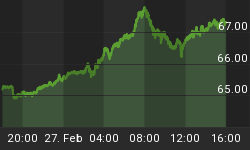Amid fears of escalating global trade wars, the European Union’s statistics agency Eurostat has registered a tangible slowdown in the first half of the year, with the quarterly GDP inching up a mere 0.4 percent in both the first and the second quarter--a clear drop from the bullish 0.6 to 0.7 percent quarterly growth seen last year.
Meanwhile, the Brexit-bound UK registered the slowest pace in its economy in more than five years in the first half of the year, with its GDP hovering around 0.1-0.3 percent.

(Click to enlarge)
Source: Eurostat
The acuteness of trade war fears has not fizzled out, despite the slight reprieve won following a meeting earlier this month between Trump and European Commission President Jean-Claude Juncker that called for a tariff ceasefire. There are still ripe pan-European apprehensions that the fight can pick up any time, depending on Trump’s prevailing mood and Juncker’s impossible task of juggling the preferences of various EU member states.
And then there’s China, which has fired back with a threat of $60 billion in tariffs on more than 5,200 American-made goods—a bad sign for all economies globally.
Behind the EU economic slowdown is not only fear of a new flurry of trade wars, but also the gaping differences among the major European powers with regard to tackling migration, EU reform and how to deal with a new America, one mistrusting the bloc under Trump.
When the U.S. President meets the new far-right Italian Prime Minister, Giuseppe Conte, in the White House and calls him “a really great guy” after previously calling the EU a “foe”, it drives a powerful wedge of distrust between the EU and the U.S.
Conte, who leads a coalition government between two populist parties--the anti-establishment five-star movement and the far-right league--could not have been a better man for Trump, given the similarities between their electoral campaigns. Both leaders have spoken for warmer relations with Russia and an anti-immigration campaign, for starters. Related: The Australian Dollar: An Unlikely Trade War Casualty
With the EU member states vehemently defending national interests and wildly guessing what to expect from the U.S president next, the EU’s future looks tepid, at best.
It is evident that, for the bloc, it is increasingly hard to agree on anything, let alone long-term and far-reaching strategies.
Against this background, implementing labor and product market reforms as well as institutional reforms designed to render EU economies more productive and resilient is growing more challenging by the day.
Yet analysts believe that the trajectory of growth, albeit slower than in 2017, will be sustained for now. Hiring is strong despite the tremendous gaps of unemployment in the bloc. Unemployment in Greece stands at 20.2 percent now, versus 2.4 percent in Czech Republic, according to Eurostat. The EU monetary policy is ultra-accommodative and the markets are healthy, although a stronger euro has taken a bite out of export growth, while rising inflation is likely to start weighing on household spending.
GDP is seen again expanding 0.5 percent in the third quarter in the EU. So, all is not lost—yet, but with a future that is increasingly unpredictable, Euroscepticism may find more true believers.
By Linas Jegelevicius for Safehaven.com
More Top Reads From Safehaven.com
















